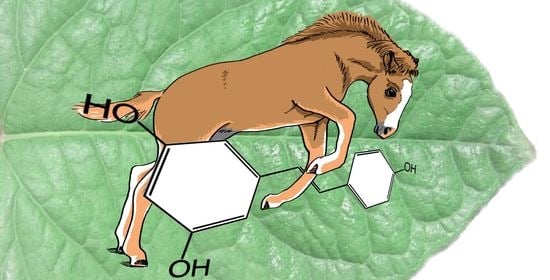Effects of Knotweed-Enriched Feed on the Blood Characteristics and Fitness of Horses
Abstract
Share and Cite
Kovářová, M.; Maděra, P.; Frantík, T.; Novák, J.; Vencl, Š. Effects of Knotweed-Enriched Feed on the Blood Characteristics and Fitness of Horses. Agriculture 2022, 12, 109. https://doi.org/10.3390/agriculture12010109
Kovářová M, Maděra P, Frantík T, Novák J, Vencl Š. Effects of Knotweed-Enriched Feed on the Blood Characteristics and Fitness of Horses. Agriculture. 2022; 12(1):109. https://doi.org/10.3390/agriculture12010109
Chicago/Turabian StyleKovářová, Marcela, Petr Maděra, Tomáš Frantík, Jan Novák, and Štěpán Vencl. 2022. "Effects of Knotweed-Enriched Feed on the Blood Characteristics and Fitness of Horses" Agriculture 12, no. 1: 109. https://doi.org/10.3390/agriculture12010109
APA StyleKovářová, M., Maděra, P., Frantík, T., Novák, J., & Vencl, Š. (2022). Effects of Knotweed-Enriched Feed on the Blood Characteristics and Fitness of Horses. Agriculture, 12(1), 109. https://doi.org/10.3390/agriculture12010109







